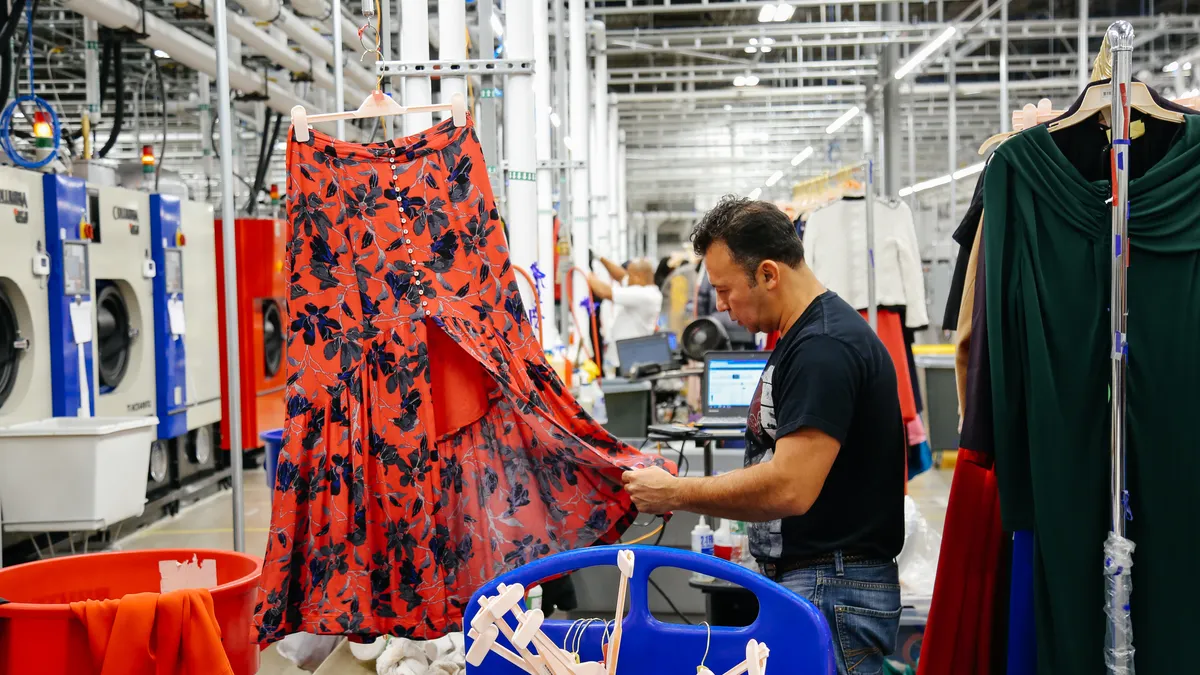Dive Brief:
- Learning and development ranks high among the concerns of apparel industry executives surveyed by consulting firm Alvanon. The company's report "The State of Skills in the Apparel Industry 2018," showed nearly two-thirds of industry leaders said learning and development is the second most pressing business issue — behind "going digital."
- Changes within the apparel space are making diversified skill sets a necessity, and workers who lack an understanding of an organization's entire supply chain may be left behind, Alvanon said. Over 60% respondents admit to having problems finding candidates with necessary skills.
- Employers in the industry are concerned that many graduates do not enter the workforce with knowledge of business and production, Catherine Cole, director of corporate development at Alvanon, said in a statement. Fewer than one third of leaders surveyed said they were using e-learning to upskill current employees, which may be a sign that the strategy is only affordable for larger organizations, Alvanon said.
Dive Insight:
Apparel and fashion aren't the only retail-sector industries looking for innovative ways to upskill. International cosmetic giant Estée Lauder recently became the first beauty company to partner with LinkedIn Learning in order to make training available for its global workforce. The company said workers will train on job aspects like leadership, digital marketing and data and analytics.
The case study for fashion-industry employers is unique in a sense, given that the industry is predominately staffed by women. A push to train more workers, from front-facing employees in retail outlets and beyond, is a recent industry development. Larger players have paired with cloud-based training companies to meet their in-store onboarding and educational needs as well as needs at the manufacturing end of the supply chain.
Businesses across industries are getting creative with training and even collaborating with educators early on to prep workers and create a robust applicant stream. The key to attracting and retaining employees in today's tight talent market may be the promise of continuous learning that benefits both the company and staff members.












